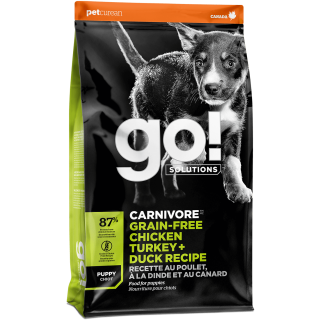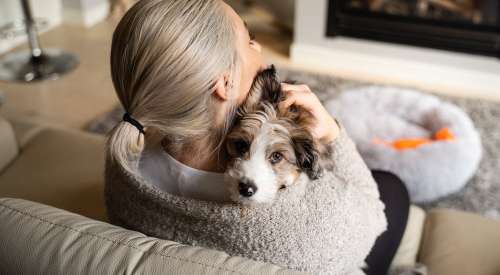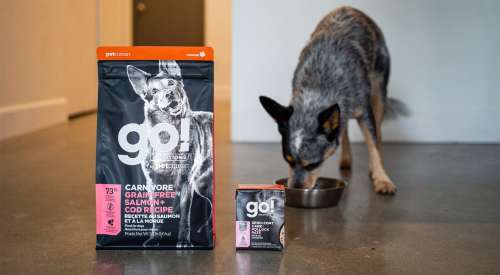February 2, 2021
How to Create a Puppy Schedule

Life can be pretty chaotic at times – work schedules, family commitments and community activities can keep us on the run. Adding a new puppy to the mix can be both a joy and a challenge, but with a little forethought and planning the transition of your new addition to the household can go smoothly and with little disruption.
It’s a good idea to plan a routine for your new puppy prior to bringing them home so that they will feel secure and settle in more quickly. You can arrange the puppy’s schedule around your own lifestyle, to some extent, so don’t feel that this is an overwhelming task and leave it until the last minute (or even worse, until after you have actually brought your new puppy home).
Things to consider
The requirements of a young puppy are greater than that of an older puppy or adult, so your planning needs to focus initially on the age of your new family member. Feeding, exercise, basic obedience and playtime all factor in to successfully raising any dog, but these factors and others are especially important in the case of puppies.
Establish a feeding routine
Young puppies need to be fed three or four times a day. You can establish a feeding schedule that fits in with your household routine, but it is best to try to stretch the meals out through the day and evening, so your puppy has an opportunity to digest his meal and obtain maximum benefit from his food. It’s a good idea to avoid feeding him just before bed, however, as he may need to go out to potty in the middle of the night. If you live on your own and work outside the home, you might find a puppy feeding schedule a bit of a challenge. However, there are many reputable people who offer dog walking services who might be able to help you with this aspect.
Puppies require high quality nourishment like the Go! Solutions Carnivore Grain Free Chicken, Turkey + Duck Puppy Recipe in order to grow up healthy, strong and mentally alert. This recipe comes in little kibble sizes with DHA and EPA to promote brain and eye development as well as premium proteins as the building blocks of life.

Recommended Solution
A Protein Rich Recipe for Growing Dogs
Our Carnivore Chicken, Turkey + Duck Recipe is perfect for puppies that need all the minerals and protein to grow big and strong.
View product details
Crate training
Crate training can be a life – and sanity – saver when you have a young puppy in the house. Although your puppy may protest initially, there are ways to make him happy and comfortable in a crate. As part of your feeding routine, you can feed him in his crate. Ensure that there is a comfortable bed or blanket in the crate and, in addition to feeding him there, shut him in with a toy stuffed with goodies. Dogs actually feel safe in their crates and come to consider them as their dens. Introducing them to the crate with thought and planning will make them happily accept being crated.
Begin crate training as soon as you bring your puppy home – it will give him safe haven and offer you a secure place to put him if you have to leave him unattended in the house. It will also assist with potty training, as most dogs are very clean animals and will avoid soiling any place that they are confined to.
Potty training
This, obviously, is an integral part of having a happy puppy and a happy home. Young puppies, depending on their activity level, may need to eliminate every couple of hours. If they have been playing hard and drinking lots of water the frequency of elimination will be more.
With young puppies it is best to establish a routine that sees them put out to potty first thing in the morning, after each meal and last thing before bed. Many puppies will sleep right through the night if they are comfortable. Again, crate training can be a huge help with this process until your puppy is reliably house-trained.
Play time and exercise
All dogs need play time and exercise to keep them happy and healthy. This time spent with your puppy also helps to build a strong, loving bond between you - the key to any successful canine-human relationship.
Although there are no strict rules about when and where to exercise your puppy, it’s a good idea to get him out and about once his vaccinations are complete. This helps with socialization and confidence building and will assist in making him a good canine citizen.
Plan to share some form of exercise or play with your puppy at least once a day, but it doesn’t necessarily have to be at the same time. The important thing is to allow him to burn off some energy, have some fun and interact with you and the world at large.
Obedience training
Again, there can be some flexibility with this, but it is a good idea to start basic obedience training as soon as you bring your puppy home. Teaching simple commands such as sit, stay and a recall help to build that all-important bond as well as imprinting some basic manners and gentle discipline – both important factors in having a well-adjusted dog that is a pleasure to have in your life.
Simple obedience commands can be worked on any time, anywhere but it’s a good idea to start with the basics in an environment where your puppy will not be distracted.
Finally…
Many folks think that their lifestyle isn’t compatible with dog ownership. But our canine friends are very flexible and, with good planning on your part, can adapt to anything within reason. As long as you are willing to put the time and effort in to raising your puppy well and responsibly little else will matter.


